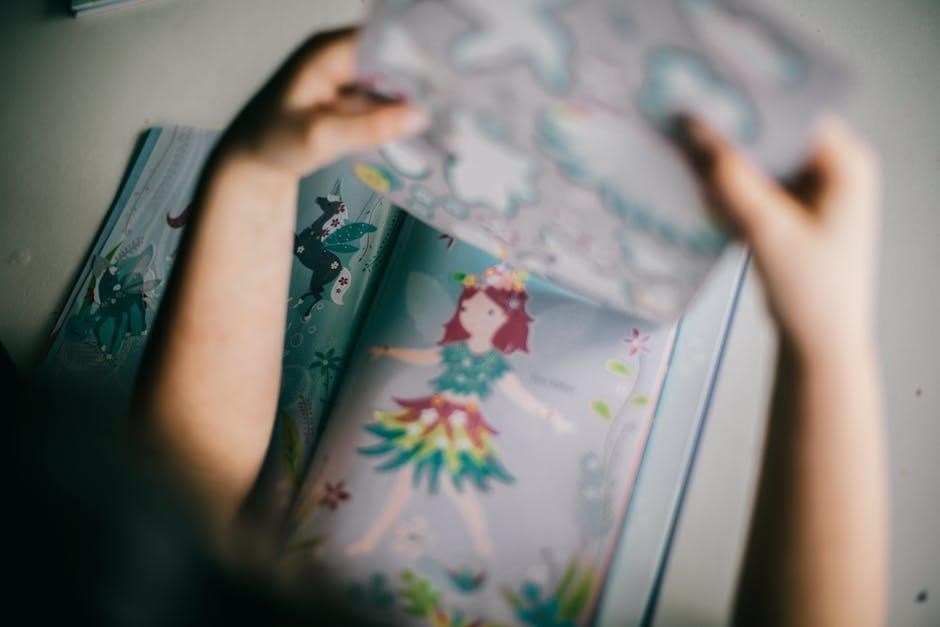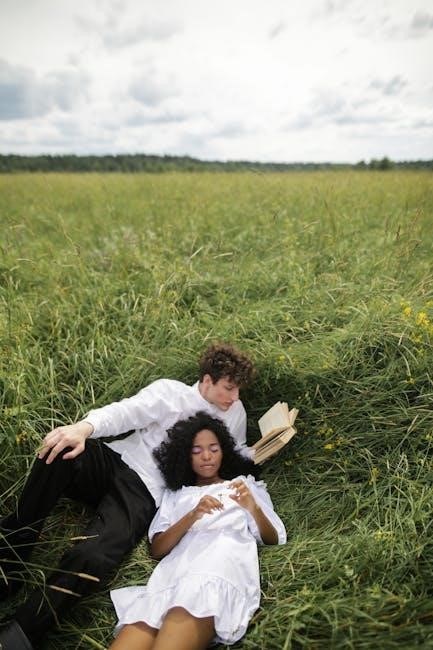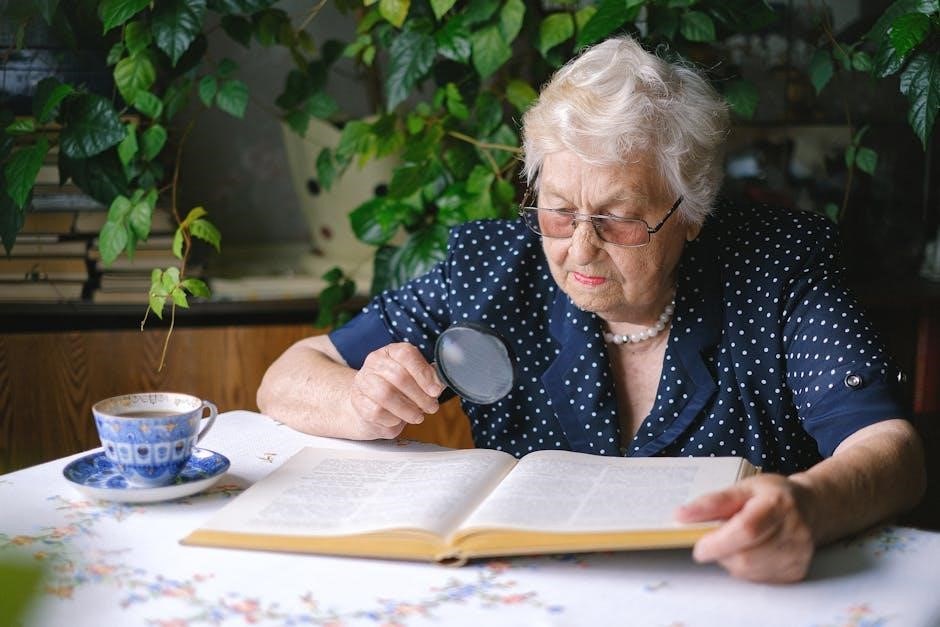Julia Alvarez’s Before We Were Free is an unforgettable story of adolescence, perseverance, and a young girl’s struggle for freedom under dictatorship.
Overview of the Book and Its Significance
“Before We Were Free” by Julia Alvarez is a powerful young adult novel that explores the life of Anita, a young girl growing up in the Dominican Republic under the oppressive regime of Rafael Trujillo. The book delves into themes of adolescence, family, and political oppression, providing a vivid portrayal of life under dictatorship. Alvarez masterfully blends personal experience with fiction, creating a story that resonates with readers. The novel highlights the resilience of the human spirit and the impact of political events on personal lives, making it a compelling read for those seeking insight into history and self-discovery.

The Historical Context of the Dominican Republic Under Dictatorship
The Dominican Republic endured decades of brutal dictatorship under Rafael Trujillo, whose regime was marked by repression, fear, and control, deeply impacting society and individual lives.
The Rule of Rafael Trujillo and Its Impact on Society
Rafael Trujillo’s dictatorship from 1930 to 1961 dominated the Dominican Republic with an iron fist. His regime enforced rigid control over every aspect of society, suppressing political opposition and free expression through fear and violence. Trujillo’s secret police, the SIM, were infamous for their brutal tactics, instilling terror among the population. The economy was exploited to enrich Trujillo and his allies, leaving many in poverty. Cultural identity was also manipulated, as Trujillo promoted a false narrative of national prosperity and unity. His rule stifled creativity and dissent, creating a climate of oppression that deeply scarred the nation. The societal impact of his dictatorship is a central theme in Julia Alvarez’s Before We Were Free, highlighting the resilience of those who dared to resist.

The Protagonist’s Journey: Anita’s Struggle for Freedom
Anita’s journey in Before We Were Free is an unforgettable story of adolescence, perseverance, and a young girl’s struggle to be free in a restrictive society.
Personal Growth and Adolescence in a Restrictive Environment
Anita’s journey in Before We Were Free explores her adolescence amidst the oppressive regime of the Dominican Republic. Her story reveals a young girl navigating self-discovery, resilience, and the harsh realities of dictatorship. The restrictive environment shapes her understanding of freedom and courage, as she learns to balance childhood innocence with the burdens of survival. Through her experiences, Anita’s personal growth is marked by fear, hope, and the lessons she gains from family and friends, ultimately defining her path toward independence and self-awareness in a world dominated by oppression.
The Role of Family and Friends in Anita’s Life
Anita’s family and friends play a vital role in her life, offering love, support, and resilience in the face of political turmoil. Her parents, though fearing Trujillo’s regime, instill in her a sense of strength and moral clarity. Friends like Dominic provide companionship and shared experiences, while her extended family offers a network of care and protection; Together, they create a sanctuary of trust and unity, helping Anita navigate the treacherous landscape of her world. Their influence shapes her identity and fuels her desire for freedom, becoming her greatest source of strength and inspiration.

Themes of Political Oppression and Resistance
Julia Alvarez’s Before We Were Free explores themes of political oppression and resistance under a dictatorial regime, highlighting the struggle for freedom and justice in a repressive society.
The Role of the Government and Secret Police
In Before We Were Free, the government, led by dictator Rafael Trujillo, enforces oppressive rule through the secret police, creating a climate of fear and control. The SIM, or secret police, monitors citizens, suppressing dissent and opposition. This oppressive regime restricts freedom, forcing individuals to live in constant terror of surveillance and punishment. Alvarez vividly portrays how the government’s brutal tactics and the secret police’s pervasive presence shape life under dictatorship, highlighting the struggle for survival and resistance in a society dominated by fear.
The Underground Movement and Fight for Freedom
In Before We Were Free, Anita witnesses the emergence of an underground movement fighting against Trujillo’s regime. Secret groups risk their lives to spread dissent and plan resistance, inspiring hope amid oppression. The novel highlights the bravery of ordinary citizens who challenge the dictatorship, despite the constant danger posed by the secret police. This movement symbolizes the resilience of the human spirit, seeking freedom and justice in a society gripped by fear and control.
Symbolism and Literary Devices in the Novel
Alvarez uses vivid symbolism, such as the Dominican landscape, to represent freedom and oppression, while her lyrical prose captures Anita’s emotional journey and the nation’s struggle.
The Use of Symbolism to Convey Freedom and Oppression
Alvarez employs rich symbolism to illustrate the tension between freedom and oppression. The Dominican landscape, with its lush fields and mountains, symbolizes the longing for liberty, while the oppressive regime’s rigid structures and surveillance embody confinement. Natural elements like rivers and forests serve as metaphors for escape and hidden truths.
Contrasting symbols, such as the openness of the countryside and the claustrophobia of the city, highlight the struggle between hope and despair. These symbols resonate deeply, reflecting Anita’s personal journey and the broader societal resistance against tyranny.

Julia Alvarez’s Writing Style and Cultural Influence
Alvarez’s lyrical prose blends personal and historical narratives, creating a vivid portrayal of the Dominican experience. Her work fosters cultural understanding and resonates globally.
Blending Personal Experience with Fiction
Julia Alvarez masterfully intertwines her personal experiences with fictional narratives, creating authentic and relatable characters. Drawing from her Dominican heritage and exile, she crafts stories that resonate deeply with readers. In Before We Were Free, Anita’s journey reflects Alvarez’s own childhood, blending cultural identity with universal themes of freedom and resilience. Her ability to merge the personal with the historical fosters a unique connection, making her work both deeply personal and broadly impactful. This blend enriches her storytelling, offering readers a window into her world while exploring larger societal issues.

Comparisons with Other Works by Julia Alvarez
Julia Alvarez’s Before We Were Free shares thematic ties with Return to Sender, both exploring freedom, family, and identity, though each offers a unique cultural perspective.
Similar Themes in “Return to Sender” and “Before We Were Free”
Both Return to Sender and Before We Were Free explore themes of identity, freedom, and family. Alvarez delves into the challenges of growing up under oppressive circumstances, highlighting resilience and cultural heritage. While Return to Sender focuses on immigration and belonging, Before We Were Free examines life under dictatorship. Both novels showcase Alvarez’s ability to weave personal and political struggles, creating relatable protagonists who embody hope and courage in the face of adversity. These works reflect her mastery in blending cultural identity with universal human experiences.
The Book’s Impact and Reception
Before We Were Free has resonated deeply with readers, praised for its vivid portrayal of resilience and cultural identity. Its impact is evident in its popularity and educational use, with study guides like LitCharts enhancing its accessibility for students and enthusiasts alike.
Reader Reviews and Literary Criticism
Readers have praised Before We Were Free for its emotional depth and vivid portrayal of life under dictatorship. Many highlight Anita’s relatable journey and the book’s ability to blend personal and political struggles. LitCharts and other study guides have enhanced its accessibility, making it a popular choice for educational settings. Critics commend Alvarez’s nuanced storytelling, which offers cultural insights while maintaining a compelling narrative. The novel’s unforgettable characters and themes resonate widely, fostering a deeper understanding of resilience and freedom.
Resources for Further Study
LitCharts offers a printable PDF guide for Before We Were Free, featuring detailed analysis and discussion points. Additional resources include online discussion guides and related articles.
Discussion Guides, PDF Downloads, and Related Articles
For deeper exploration of Before We Were Free, numerous online resources are available. LitCharts provides a comprehensive, printable PDF guide, offering insights into themes, characters, and historical context. Additionally, educational platforms and author websites feature discussion guides tailored for classroom use or book clubs. These materials include thought-provoking questions, analysis of key scenes, and essay prompts. Supplementary articles and reviews further enrich understanding, while PDF downloads of the novel itself are accessible through various digital libraries and bookstores, enabling readers to engage with the story in multiple formats. These resources enhance the reading experience and facilitate meaningful discussions.
